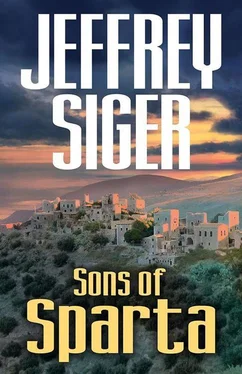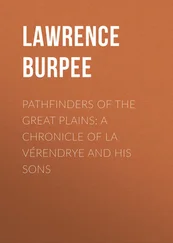Jeffrey Siger - Sons of Sparta
Здесь есть возможность читать онлайн «Jeffrey Siger - Sons of Sparta» весь текст электронной книги совершенно бесплатно (целиком полную версию без сокращений). В некоторых случаях можно слушать аудио, скачать через торрент в формате fb2 и присутствует краткое содержание. Год выпуска: 2014, ISBN: 2014, Издательство: Poisoned Pen Press, Жанр: Полицейский детектив, на английском языке. Описание произведения, (предисловие) а так же отзывы посетителей доступны на портале библиотеки ЛибКат.
- Название:Sons of Sparta
- Автор:
- Издательство:Poisoned Pen Press
- Жанр:
- Год:2014
- ISBN:9781464203169
- Рейтинг книги:5 / 5. Голосов: 1
-
Избранное:Добавить в избранное
- Отзывы:
-
Ваша оценка:
- 100
- 1
- 2
- 3
- 4
- 5
Sons of Sparta: краткое содержание, описание и аннотация
Предлагаем к чтению аннотацию, описание, краткое содержание или предисловие (зависит от того, что написал сам автор книги «Sons of Sparta»). Если вы не нашли необходимую информацию о книге — напишите в комментариях, мы постараемся отыскать её.
Sons of Sparta — читать онлайн бесплатно полную книгу (весь текст) целиком
Ниже представлен текст книги, разбитый по страницам. Система сохранения места последней прочитанной страницы, позволяет с удобством читать онлайн бесплатно книгу «Sons of Sparta», без необходимости каждый раз заново искать на чём Вы остановились. Поставьте закладку, и сможете в любой момент перейти на страницу, на которой закончили чтение.
Интервал:
Закладка:
Jeffrey Siger
Sons of Sparta
“[I]n this century, scarcely a word has been written on the remote and barren but astonishing region of the Mani…but the name of the Mani at once suggests four ideas to any Greek: the custom of the blood feud, dirges, Petrobey Mavromichalis, the leader of the Maniots in the Greek War of Independence and the fact that the Mani…wrested its freedom from the Turks and maintained a precarious independence.”
— Patrick Leigh Fermor (1915–2011) MANI: Travels in the Southern Peloponnese (1958)Chapter One
As he drove alone down the highway the tune kept running through his head. An old Greek ballad. He couldn’t shake it. Not since early morning, when his father’s brother called to say, “Come home at once,” offering no more of an explanation than “It’s a family matter.”
Everyone in his family knew the words that went with the tune, lyrics that spoke of family honor and all that was expected of those duty-bound to protect it. The song told the story of his father’s father and what his family had demanded of him a hundred years before:
In the early 1900s a young medical student studying in Athens received a message from his father to return home at once. The trip from Athens to the Mani, in the southernmost part of Greece’s Peloponnese, took several days. When the student arrived home he learned that his younger sister had humiliated their father by becoming pregnant by a young man in their village. Her lover had proposed to marry his sister, but their father refused. Instead, in front of his sister and her lover he told his son to shoot and kill them both.
The lovers ran from the house, but the brother caught up with his sister in the courtyard and murdered her there. His sister’s lover he caught and killed at the port as he tried to escape by boat.
At the trial of the brother for killing his sister and her lover, the Judge was about to render his decision when the Judge’s mother stood and shouted at her son, “Just remember before you pass judgment that you murdered your own sister for the very same reason.”
The brother was acquitted and returned to medical school.
The driver shot a quick glance down at the Corinth canal as he passed west from the Greek mainland onto the Peloponnese peninsula.
I wonder what Uncle has in mind , thought Greece’s Special Crimes Division detective Yianni Kouros. Judges weren’t as forgiving these days as they had been in his grandfather’s day.
***
The Peloponnese stood as the southernmost part of mainland Greece, about the same size as the American state of Massachusetts. It had served as the setting for much of the blood-soaked drama that played out across ancient Greece, as well as the ancestral home to Spartan power that had rattled the ancient world even more than its legend resonated in popular imagination today. Many said the ancient Spartans simply vanished from the Earth without a trace, same as their city. Others believed they had gone farther south and found sanctuary deep in the mountain-spined, middle peninsula of the trident-shaped tip of the Peloponnese, to the region known as the Mani.
Kouros smiled as he recalled his father blasting anyone who dared question the Mani’s claim to Spartan origins. Maniots took great pride in their region’s colorful, notorious history as home to their pirate, highwayman, and warrior ancestors; in men and women fighting ferociously alongside other Maniots to defeat every foreign force foolish enough to attempt to occupy their part of Greece; and in being the first to declare war on the Turks in Greece’s 1821 War of Independence.
But the smile faded as he thought of his uncle, the last male of his generation. The others had all died young, Kouros’ father the only one from natural causes.
West of Corinth, Kouros turned south at Tripoli onto a two-lane road toward Sparta. In these late October days, with most tourists gone, he’d made good time, but still had halfway to go, and beyond Sparta the road would slow him down even more. This wasn’t the Sparta of ancient times, whose inhabitants lived a warrior life disinterested in erecting the magnificent edifices so important to their northern Peloponnese neighbors and the far-off Athenians. No, this was modern Sparta, a town of government offices, businesses, and residences where prosperity depended upon groves of oranges and olives, not on war.
North of Sparta the road coursed through a five-mile stretch of lush, high, mountain passes overlooking broad green valleys and a horizon of jagged mountain giants. He always wondered as he traveled through this wilderness why nearly one-half of Greece’s eleven million people chose to live crammed together around Athens with so much of Greece this green and uninhabited.
And I’m one of them .
South of Sparta, Kouros passed into the Mani. The land turned harsher, wilder, tougher, less forgiving, though still green and filled with citrus, olives, and corn. But once he turned west and began climbing the rugged north-south Taygetos mountain range, greens swiftly turned to browns and grays. On the other side of those mountains lay the region of the Mani his family called home-arid rocky land penned in by the Ionian Sea to the west and worn-down limestone mountains to the east, a place where olive trees battled with boulders for the region’s arable land.
The source of this part of the Mani’s only significant modern economy loomed like sentinels along the ridges and hillsides: ancient four- and five-story, square, stone battle towers, historical treasures erected by Mani families as far back as the thirteenth century, which today drew tourists in flocks.
But to Kouros the towers were stark reminders of another side to the Maniots’ fierce character, for although they offered strong defensive positions against bandits, pirates, and foreign invaders, their principal purpose served the families’ ruthless battles with their neighbors. Here the concept of family vendetta was so deeply engrained that Mani society had rules on how, when, and against whom vengeance could and could not be taken. Doctors and priests, for instance, were considered too valuable to the community to serve as targets of an offended family.
At the southern end of a long, wide plateau running between the road and the mountains, Kouros turned left and followed a rock and dirt lane up toward a sharp-edged, two-story stone farmhouse. Decade-old cars and a couple of beat-up pickups sat parked every which way next to a five-story, beige and gray tower made of the same stone as the farmhouse a hundred feet away.
He parked next to one of the pickups and sat for a moment, staring at the farmhouse. Everything about it, from the color of its walls, its roughhewn wooden front door, and its traditional Peloponnesian terra-cotta-tiled roof, brought one word to mind: nondescript.
Precisely how his uncle wanted his home to appear to the outside world.
***
On the other side of the farmhouse door lay what few could imagine existed in historically impoverished, southwest Mani. This was Mesa or Deep Mani, where people struggled with virtually waterless, salt-wind-driven land, enduring lives far more difficult than did Maniots living in the fertile, olive- and honey-rich areas of Exo or Outer Mani to the north, or to the east, beyond the Taygetos mountain range, in Kato or Lower Mani.
Amid land so poor and scarce that not even the deeply held Greek tradition of dowry was practiced, Uncle’s home featured artwork and furnishings as fine as any to be found in a ship owner’s Athenian mansion. Its ground floor, which once functioned as stables, mangers, and a barrier from the damp ground, now served as the main living area.
Читать дальшеИнтервал:
Закладка:
Похожие книги на «Sons of Sparta»
Представляем Вашему вниманию похожие книги на «Sons of Sparta» списком для выбора. Мы отобрали схожую по названию и смыслу литературу в надежде предоставить читателям больше вариантов отыскать новые, интересные, ещё непрочитанные произведения.
Обсуждение, отзывы о книге «Sons of Sparta» и просто собственные мнения читателей. Оставьте ваши комментарии, напишите, что Вы думаете о произведении, его смысле или главных героях. Укажите что конкретно понравилось, а что нет, и почему Вы так считаете.












